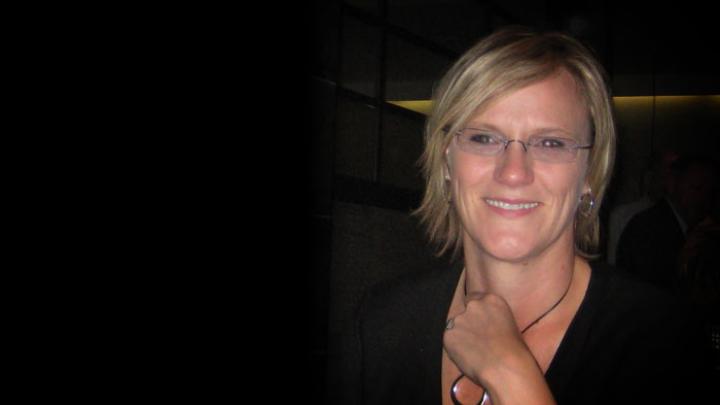
Affiliation: Alumna
Program: MS, Health Professions Education
Education: Diploma, School of Midwifery, University of Heidelberg (Midwifery); BA, Catholic University of Applied Sciences Cologne (Nursing Education); Certificate of Advanced Studies, Zurich University of Applied Sciences (Academic Writing and Writing Support)
Specialty: Development of Cultural Competence in Midwifery Education
As the first to earn an MS in health professions education degree in 2009—she had to finish early to take a job offer in Switzerland—Karin Brendel had experience being at the forefront of a new academic program, developed by the Warner School of Education, the School of Nursing, and the School of Medicine and Dentistry. Now she has designed and is implementing a midwife education program at the Zurich University of Applied Sciences.
“The whole process is very exciting,” she says. “It’s a lot of work, and there’s a special power and energy in being responsible for so many changes to make a system even better, in working with so many inspiring people at this particular moment.”
This moment revolves around the recent creation of the European Higher Education Area, which makes academic degree standards more comparable and compatible throughout 47 countries in Europe. Brendel, trained as a midwife under less-stringent standards in Germany, where she worked at a hospital for 12 years, saw the potential for being part of this historic change as an educator and enrolled at Warner.
These days, Brendel is constructing a bachelor’s degree program in midwifery. In addition to courses that focus on the fundamentals of midwifery research, evidence-based midwifery, and other theoretical aspects of the field, she is charged with developing thesis standards and planning curriculum.
She appreciates the close working relationship with medical professionals at hospitals and clinics in and around Zurich: “They do the practical training, so there’s always a good exchange of ideas.”
That interdisciplinary approach is a familiar one from her days at the University of Rochester—the first in the region and one of a small number of higher education institutions worldwide to offer a comprehensive master’s degree of this kind.
“The training at Warner is helping me as I implement this new concept now, and do it in a way that makes sense from beginning to end,” she says, adding that as a foreign student, the courses, labs, and workshops dedicated to writing, communication, and curriculum development were particularly valuable. “I think about the model of the ‘learning spiral’ or ‘problem-based learning’ in designing courses to offer how students take a deeper look at the material.”
The Zurich University of Applied Sciences recently graduated its first midwifery education class of 56 students.
“I noticed what it took those at Warner to develop that program, and I use some of their strategies over here,” she says. “It was quite a good experience to earn my degree there. It certainly enhanced my skills as an educator.”